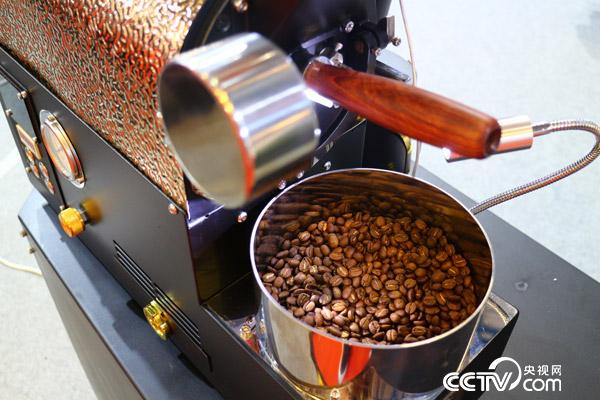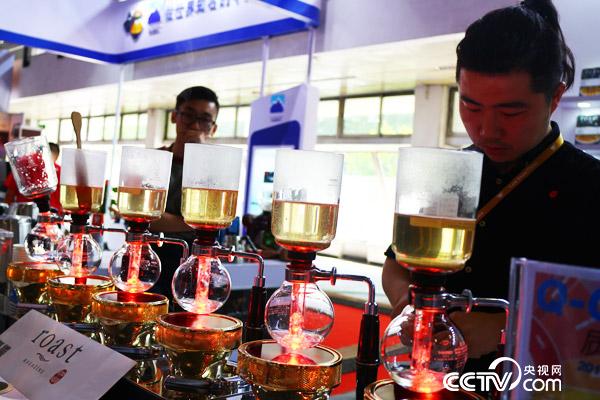Source: CCTV.com reporter Zheng Limin, Colin Graham Robinson
Monday 10th July, 2017
China's Coffee Brands Aim High as Industry Grows
With China’s growing middle class and a shift toward more upscale consumer habits, the coffee industry is growing nationwide. Although tea has always been the preferred drink of many Chinese, the nation is developing a thirst for coffee, particularly among young professionals in the its largest cities.
In southern China’s Yunnan province, famed for its Pu’er tea production, there are large coffee plantations that now produce more than 100,000 tons per year. Meanwhile, international cafe chains such as Starbucks and Costa have also focused on establishing themselves in the Chinese market, which has brought about a deeper understanding of coffee culture.

Aiming to provide a platform to address such issuses and to expand the Chinese coffee market, the 5th China International Cafe show was held in Beijing held from July 6-9.
China has become one of the fastest-growing coffee consuming markets in the world, with a growth rate of 25 percent. But Chinese coffee brands face challenges as well as opportunities. Indeed, in 2016 there were more than 100,000 coffee shops in China, but the rate of closure was 13.5 percent.
Aiming to provide a platform to address such issuses and to expand the Chinese coffee market, the 5th China International Cafe show was held in Beijing from July 6-9. The show welcomed more than 300 exhibitors from all around the world, and it was expected to receive more than 70,000 visitors.

The show welcomed more than 300 exhibitors from all around the world, and it was expected to receive more than 70,000 visitors.
At the exhibition, Shi Shuomiao, marketing manager of Mellower Coffee, a speciality coffee chain that originated in Shanghai in 2011 and now has 20 stores, said that the key to the success of coffee shops is to concentrate on product quality.
“For Chinese brands, we learn from the foreign coffee companies in management; we also create a third space for ourselves to develop. Our aim is to make a different way of managing, which is to focus on the quality of coffee products,” Shi said.
“What we want is to let the customers enjoy coffee itself, which is also our motto: just for a good cup of coffee… But now the popularity of coffee culture is still low in China, and what we’re doing is to change the consumers’ attitude toward coffee-drinking.”
Despite the growth of China’s coffee market, there are concerns about low entry requirements, poor profits and a lack of management expertise. Joyce Chen, general manager of Hiang Kie Coffee Beijing Business and Trade Co. Ltd., believes that individuation, creativity and high quality of products are essential to good management.
“Chains in China now pay more attention to quality, while the foreign brands favor the uniformity and consistency of flavor. Some of our specialty coffee shops focus more on the individuation and high quality of coffee; that should be a development trend for coffee shop management in the future,” Chen said.
“And for shop decoration, it should be simple and clean, and more attention should be paid to the quality of products, the outlooking, the control of materials, the simple and creative presentation of products are key elements for success.”

Despite the growth of China’s coffee market, there are concerns about low entry requirements, poor profits and a lack of management expertise.









